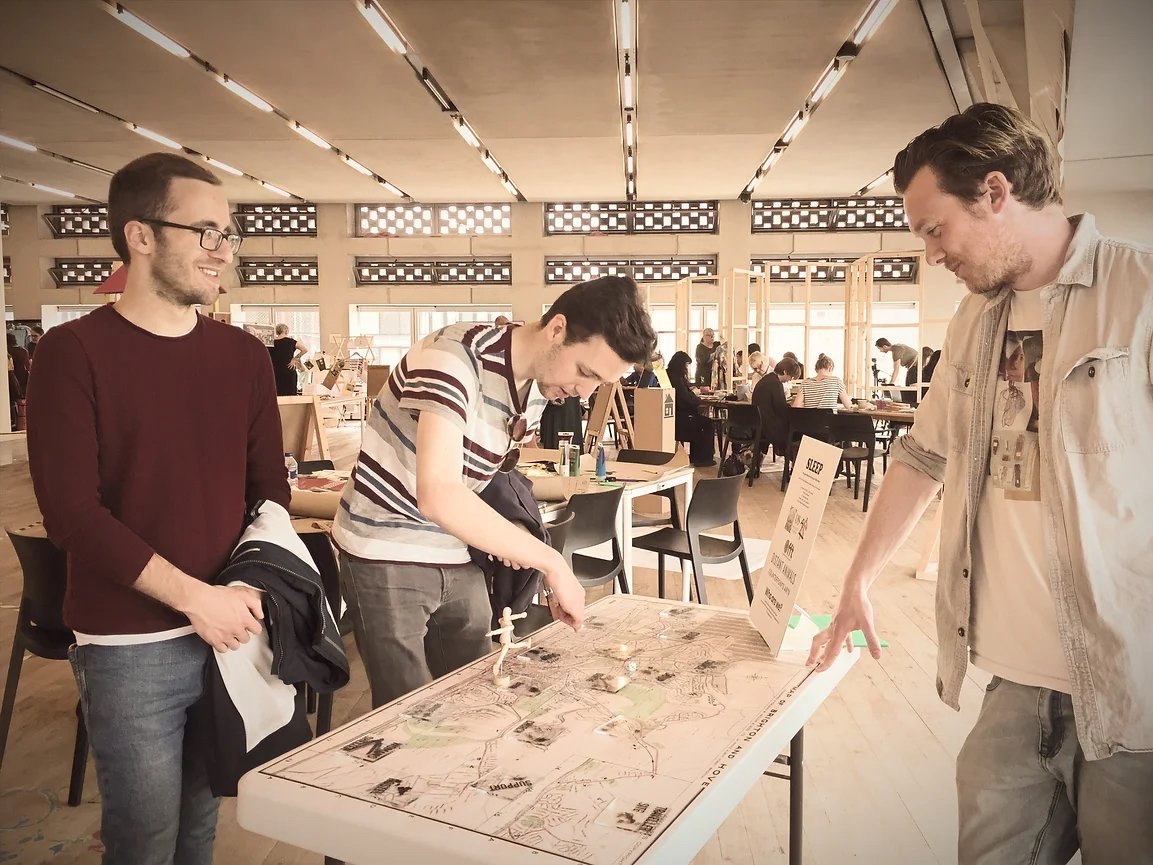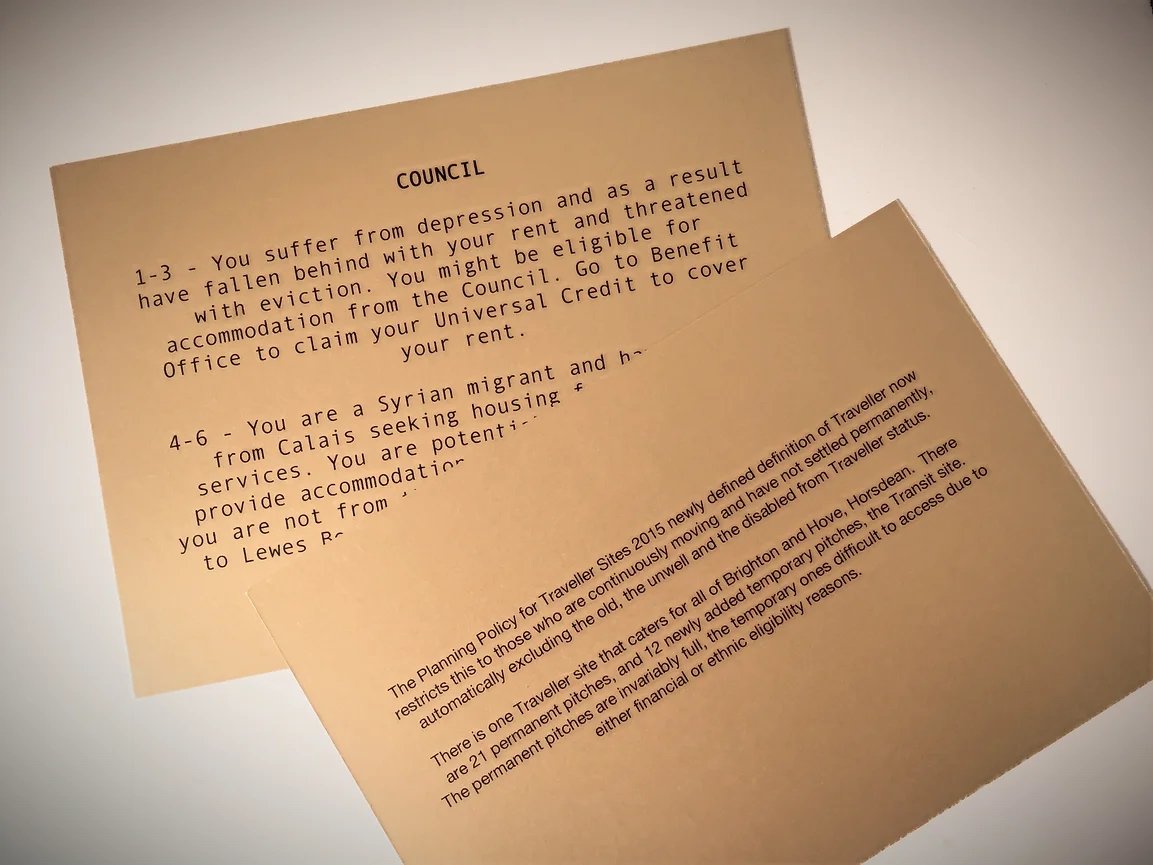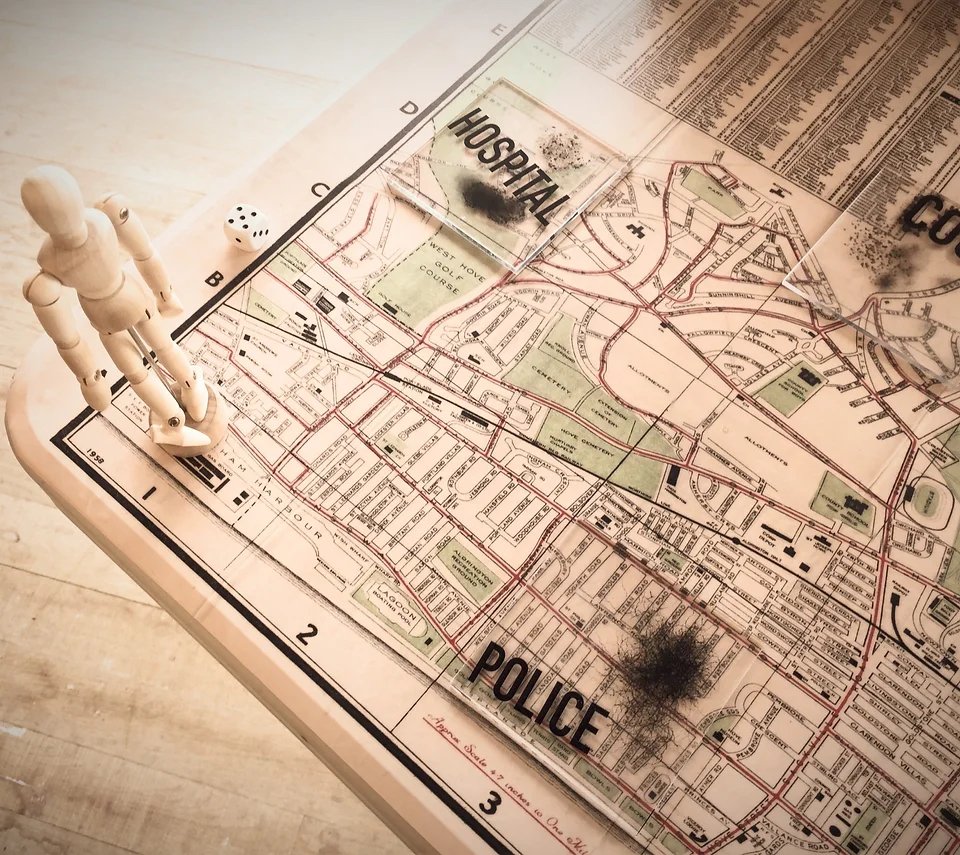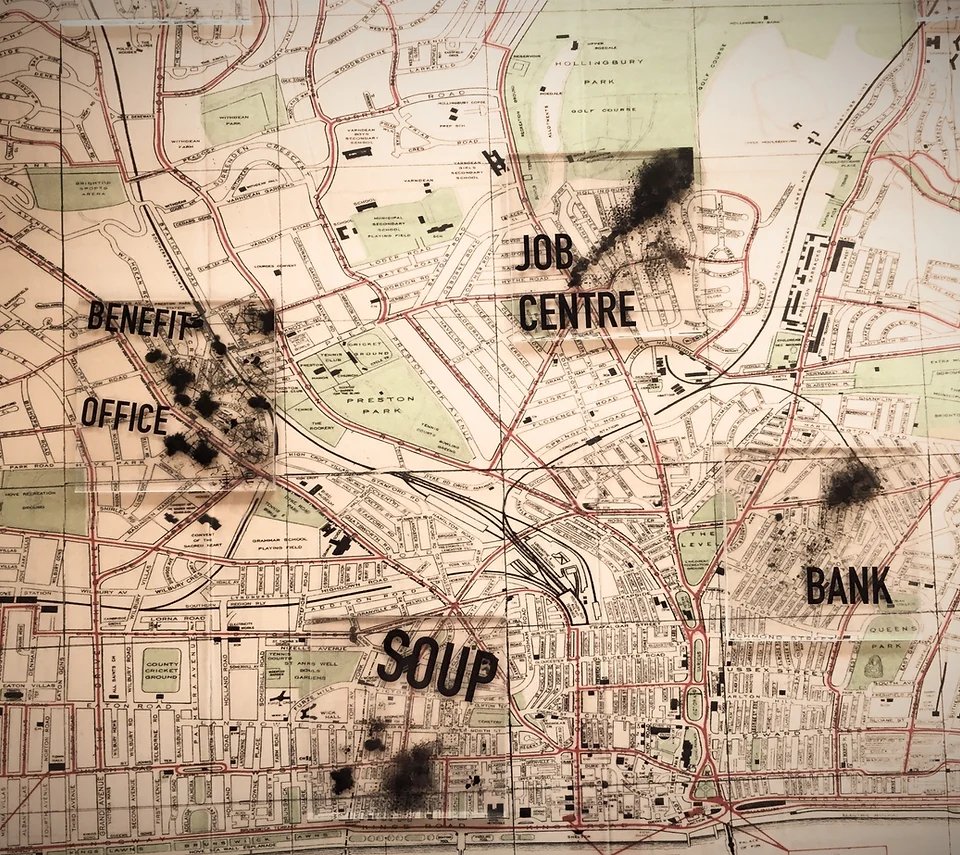
Research
Research-orientated / Ethically-minded / Socially-aware
7000 Trees is constantly engaging with new and exciting research. Our very first project, ‘Brexshitting’, worked with students and staff at an inner city college to explore the language used by politicians and the media during the EU withdrawal negations. The data we collected was then used as the basis of a new audio-visual work: pressing live lathe-cut records of data sonification and locative field-recordings, which was later presented at Brighton’s SEAS gallery.
In 2020 we worked with the Art/Law project to produce a novel method of disseminating legal research: an interactive board game. Starting with as a visiting lecturer residency at the University of Sussex, we worked with the law school to examine case law relating to the use of Public Space Protection Orders against the travelling and homeless communities. Our findings were then presented as game cards which participants would encounter as they attempted to move an avatar across a city centre map. The goal of the game was simply to find a place to sleep, with our research highlighting the very real complexities faced by rough sleepers in contemporary Britain. Throughout the residency, meetings were organised with local traveller groups and the output of the work - not only the participatory game but a body of legal research - was subsequently used to support a judicial review challenging the use of PSPO’s against the travelling community.
The board game ws present at the Tate Exchange gallery, and its research written up and published as part of the Counterpress chapter book, Art/Law/Power.
Currently, we are engaged in a large-scale project exploring the state of grass-roots music in the UK. Having initially developed the MEANS community-led culture platform, we are now working with our sister organisation Difficult Art and Music to develop socially and ecologically sustainable physical music releases. This research builds upon existing literature concerning issues of mental health within the music industry, as well as the issues of inequality highlighted by current distribution practices.
Fig 1: The ‘Sleep’ board game and participants at the Tate Exchange. The board game format allowed us to explain often complex and nuanced research in an accessible and interactive manner.
Fig 2: The cover design of the ‘brexshitting’ lathe record; sleeve design for ‘The Frequency of the Heart at Rest’ on Cruel Nature Recordings. This project explored the biological and mental affects of prolonged sleep-loss, and used these finding to create a new music work.







